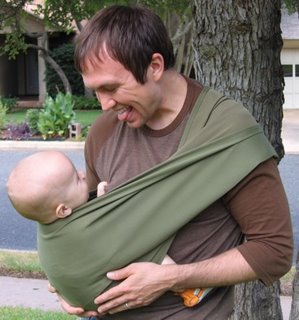So I just finished a pretty amazing book. It's called Parenting For A Peaceful World, and it's by an Australian chap goes by the name of Robin Grille. I think I mentioned this in a previous post about ten years ago when I started reading it. Before you yawn off, I should tell you it's not exactly a parenting manual. It's more of a journey through the world's history through the lens of parenting and childhood, talking about the various stages of parenting through the ages and what life was like, not only for the children, but for the adults who grew up within those varied societies to become the next generation of parents, teachers, doctors, legislators, experts, and leaders. Long story short, we've gotten much better over the millennia, advancing from infanticidal barbarians to our current state where, although abuse does still happen, it's much less common and recognized as wrong and pretty much outlawed. The book succeeds, I think, in spelling out a pretty good cause and effect relationship between a society's more common parenting styles and its proclivity for violence or peace. To cite just one example, the generation that grew up to become Nazi Germany was raised during a time when the most popular German parenting manuals advised parents, and I shit you not, to refrain entirely from physical displays of affection and do whatever was necessary to establish rigid authority over the child, including such lovely methods as "physically perceptible admonitions" to bring baby's crying to an end (i can only imagine what that means), the use of metal jackets to enforce posture, and teaching self-denial to children by eating their favorite foods in front of them, but not giving them any. Hitler himself was made to count each blow out loud as his father administered them, and was frequently beaten unconscious. Stalin, Mao Tse-Tung, Saddam Hussein, basically every perpetrator of massive state-sponsored murder is known to have had an extremely violent childhood. It's pretty common knowledge these days that abused children become abusive adults, but pulling back for just a second and seeing what happens, what has happened, when abused children grow up and vie for power that is then handed to them by nations of people that also experienced abusive childhoods who are all too glad to give over authority to punitive rulers, well...let's just say it makes me curious about what the Bush household was like when George and Jeb were growing up.
Speaking of G.W., the book's got some pretty harsh words for the U.S. For example, in 1989, the UN General Assembly passed the Convention on the Rights of the Child, which stipulates, among other basic kid-related laws, that children may not be executed, jailed for life, or imprisoned with adult offenders. Sounds good, right? Every UN nation has ratified it except for the US and Somalia. We're in company with goddamn Somalia. The US must be like the big rich retarded kid at the UN. Not to mention the fact that we give WAY less maternity leave than many other nations, including many rather poor nations. Why are we always so goddamned backwards on this shit?
So that barely covers a tiny portion of the book's scope. The ultimate premise that it sets out to prove is a fairly simple one, that loving and empathetic parenting develops children who are more capable of love and empathy themselves, who grow into more fully-realized adults with no need or desire to choose violence, thus creating better societies and a better world. A simple formula, right? It's tempting at times to just jettison the whole thing, especially after listening to war coverage on the way home from work, and particularly because the book is just so damn optimistic in tone. This Grille guy really envisions a peaceful world, and in fact sees that as a fairly modest accomplishment, just a starting point for much greater things. The book was published in 2005, and he doesn't ignore the Iraq war, but even with that factored in, he still manages to see us moving towards peace, and I think he actually succeeds in laying out some pretty good reasons for hope. I guess I have to give him kudos for having that kind of audacity.
I think ultimately, it's a reminder that parenting, like any of the larger roles that we find ourselves called to, is work that's performed day to day, moment to moment, but whose scope is long term. The treatment of our ancestors when they were children shaped the world we grew up in and the parenting that we received, and the way we treat today's kids will have many results that we won't live to see.
To close, here's a neat quote:
"To look into some aspects of the future, we do not need projections by supercomputers. Much of the next millennium can be seen in how we care for our children today. Tomorrow's world may be influenced by science and technology, but more than anything, it is already taking shape in the bodies and minds of our children."
- Kofi Annan





